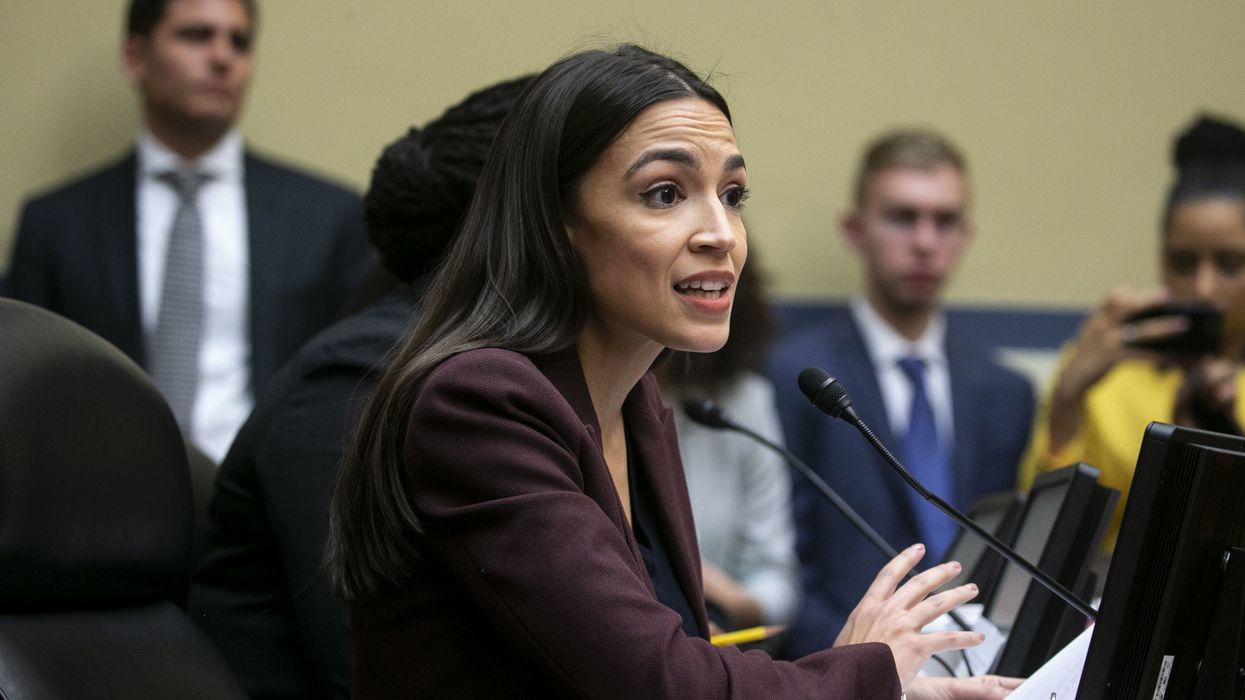
Al Drago/Bloomberg via Getty Images

Faith is supposed to transcend politics
"What good are your thoughts and prayers?"
That's a strange question for a Christian to ask. Yet, that was the question from Rep. Alexandria Ocasio-Cortez (D-N.Y.) on Thursday night after a gunman massacred worshipers in two New Zealand mosques.
"Thoughts and prayers" has become a source of mockery from liberals over the years who have made the phrase synonymous with conservative resistance to stricter gun control laws.
This type of mockery makes sense coming from nonreligious people. Why would they value prayer if they don't believe in a God who might answer?
But when this particular jab comes from someone who associates themselves with Christianity and quotes scripture publicly to make points, one must wonder about the nature of that person's faith.
Far be it from me to tell someone whether they are Christian or not, but it is fair to evaluate a person based on their words. If you believe in God as He is revealed in the Bible, you shouldn't be able to sincerely question what benefit prayer might have.
Additionally, if you believe (and have a reasonable understanding of) the Bible, you won't use a single tragedy as an opportunity to point out how prayer doesn't work. Even well-educated nonbelievers typically know better than to use that sort of feeble logic to argue against God or Christianity.
Now, I'm not naive. I understand what Ocasio-Cortez was doing; she's simply joining in the stampede of politicians eager to use any news event, no matter how sensitive or tragic, to gain some attention and score political points.
So she reached as far as she could in order to somehow connect an overseas massacre to the National Rifle Association, while also branding "thoughts and prayers" as an NRA invention. It's all a bit ridiculous.
But it stood out to me, maybe more than it normally would have, because I had just read comments from Democratic presidential candidate Pete Buttigieg, who professes to be a Christian, as he attacked Vice President Mike Pence for his own beliefs.
I find it interesting when Democrats discuss Christian faith. For example, Buttigieg, who is gay, criticized Pence's beliefs (which come from the Bible) about sexuality, and questioned whether Pence stopped believing in the Bible when he aligned himself with President Donald Trump.
Buttigieg also said he found prayer challenging, and that he has trouble with "traditional forms of praying" and praying outside of group settings in church. Here's what he said about personal prayer:
"Grammatically when we pray we are in the imperative mood which means we're telling God what to do. I get that there's a lot more to prayer … but personally I think prayer is mostly about making sure that I am tuned. The prayer that makes the most sense to me is that may we delight in Thy will and walk in Thy way which is what we're supposed to be, not telling God what he's supposed to do," he added.
To him, it seems that prayer is either passively being "tuned" to God's will, or aggressively "telling God what he's supposed to do." A limited and incorrect view of prayer could be why some Democratic Christian might feel "thoughts and prayers" are useless.
The Bible is overflowing with verses telling Christians to pray constantly, to pray in their suffering, to pray for others in need, to make personal requests known to God, etc. It's not simply abstract tuning to God, and it's not childishly demanding things of God.
You can be in favor of gun control without deriding those who choose to pray for victims and families. In fact, if you're a Christian, you should rejoice whenever you see someone praying for another. Because if you're a Christian, you believe prayer is more powerful than any action you can take apart from God.
Christianity is so much larger than politics. Every believer must have the ability to recognize that the common bond of faith in Jesus Christ far overshadows debates about how the Second Amendment should be applied, or any other political dispute. No Christian should ever be willing to publicly weaken perception of their faith in order to advance a political stance.